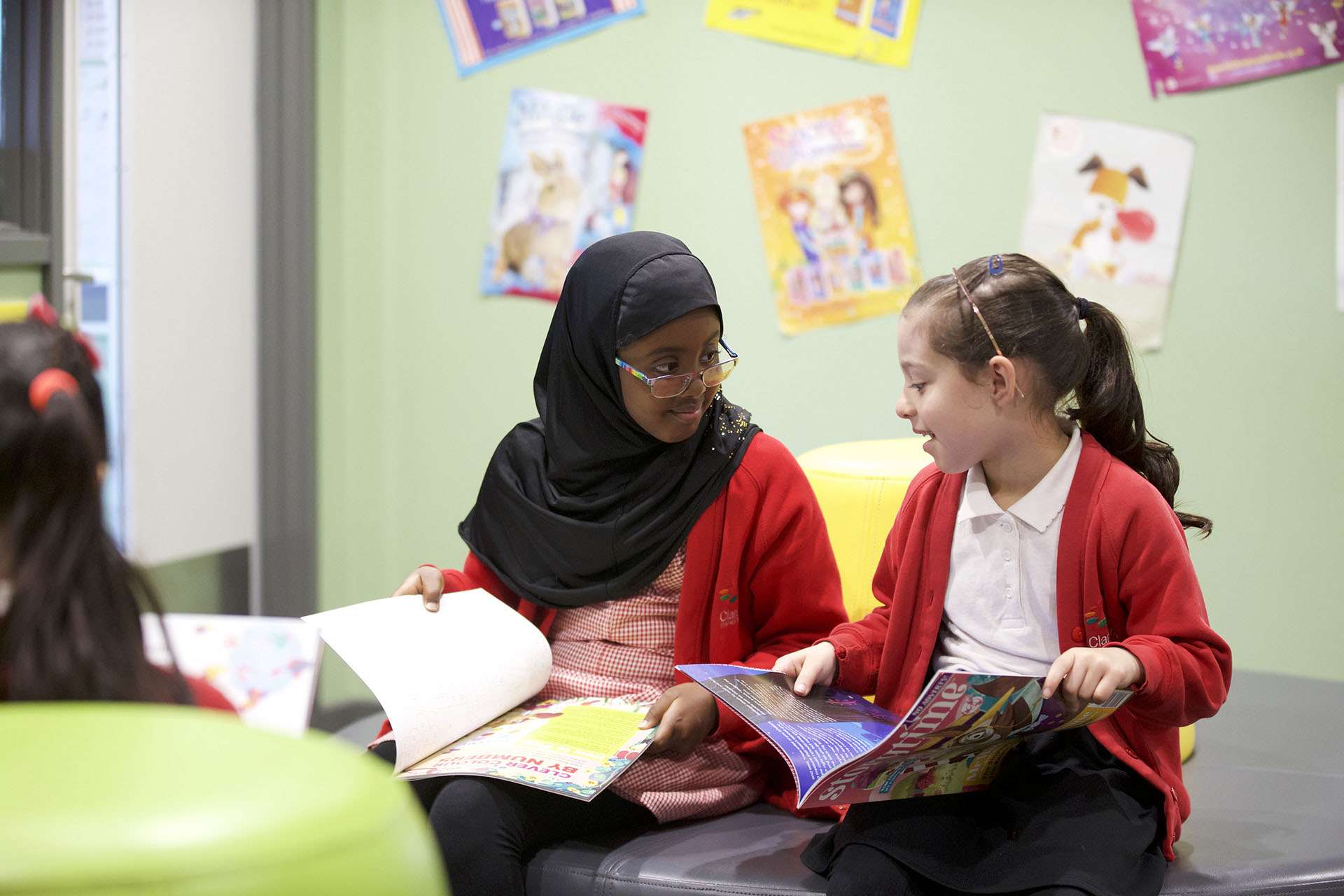English – Reading Curriculum Statement
At Claremont Primary School we want all our children to be successful readers- to enjoy reading and to have a love for books
We teach reading using a variety of strategies
- Daily phonics lessons in EYFS, Key Stage 1 and Year 3
- Nursery children follow First Steps to Phonics from FFT
- Targeted phonics small group bespoke teaching for children in EYFS, key stage 1 and key stage 2
- Daily Shared reading lessons in Reception and year 1 (Using our phonics scheme)
- Daily guided reading lessons in year 2 following FFT Routes to reading
- Daily guided reading lessons Key Stage 2 which include fluency and comprehension strategies
- Additional guided reading sessions for some pupils
- Targeted small group bespoke teaching including Tutoring with the Lightning Squad
- Shared reading during English lessons
- Daily reading for pleasure time from year 1 upwards
- Teachers reading high quality texts to classes daily including our Claremont Reading Spine and beyond
All our children are members of the local library and we take children and parents to the library throughout the year. We take part in projects to encourage reading for pleasure including Chase Rewarding Futures, The Summer Reading Challenge and See Myself in Books.
All children take home reading books these include
- Shared reading books from the FFT phonics scheme or routes to reading
- books at the child’s correct book band level for fluency (Books that are chosen for home are at the easy level – The children read them at 95-100% accuracy. They enjoy reading them and feel successful as a reader. They read the words and understand what they have read)
- decodable reading books at their current phonics level
- stories to share with an adult
- children’s own choice from a book swap box
All children have access to online books through Bug Club
Phonics
We believe that high-quality phonics teaching improves literacy levels and gives all children a solid base on which to build and develop their reading habits so that they read widely and often for reading and information.
Through daily, systematic and consistent high-quality phonics teaching, children learn to blend and segment words for reading and spelling. To allow our children to develop a strong phonic awareness and effective blending, decoding and comprehension skills, we have chosen to use a DfE Validated synthetic phonics programme (SSP) called FFT Success for All Phonics from FFT. The programme supports our intentions to teach children to read and write independently so that they are able to access a broad and exciting curriculum and flourish as learners throughout their time at our school.
Children in EYFS, Key Stage 1 and Year 3 have a daily phonics lesson following the Success for All programme.
Each session gives an opportunity for children to revisit their previous experience, be taught new skills, practice together and apply what they have learned and celebrate their achievements. It follows the teaching principles of:
- Revisit and Review
- Teach and Model
- Practise and Apply
- Celebrate Achievement and Assess
How you can help your child at home
- Share stories at home with your child, these can be in any language.
- Listen to your child read their school reading book
- Help your child to bring their book bag to school every day
- Talk to your child about the books that they love
- Visit the local library with your child and choose books to share at home
- Access Bug Club at home so your child can practise their reading and listen to stories.
Tutoring with the Lightning Squad
Tutoring with the Lightning Squad is a reading tutoring programme where pupils work in small groups with a tutor to improve their reading skills. To find out more about TWLS please click on this link.

Useful Documents
| Curriculum Statement – Reading |
| Claremont Reading Spine |
Visits: 71



